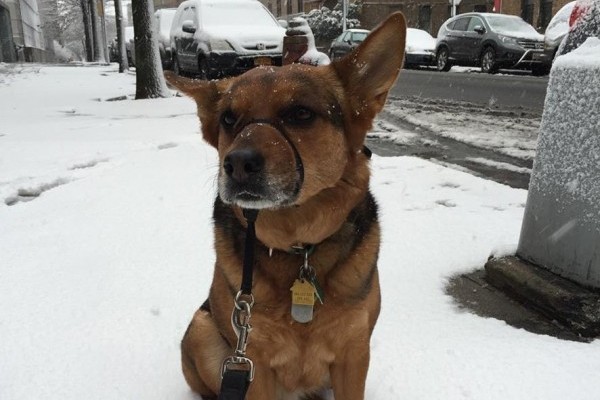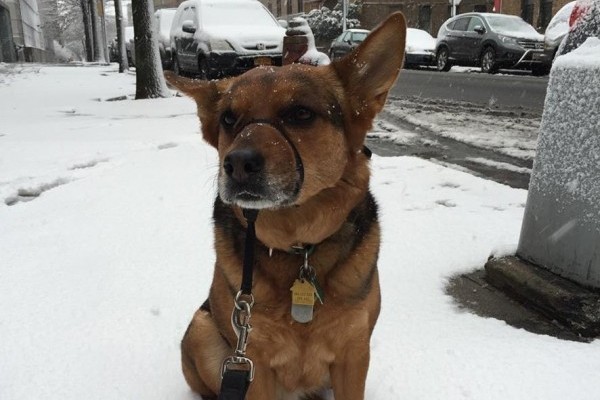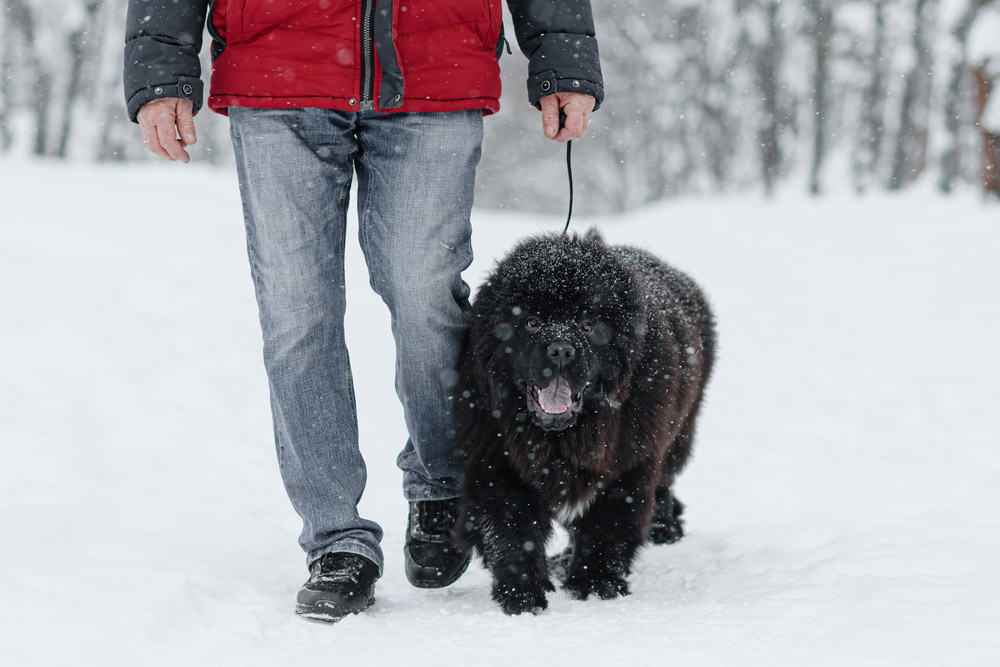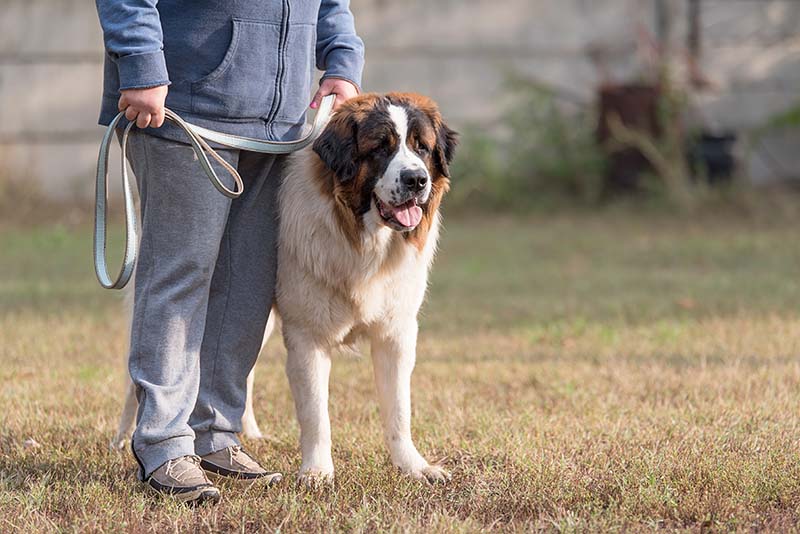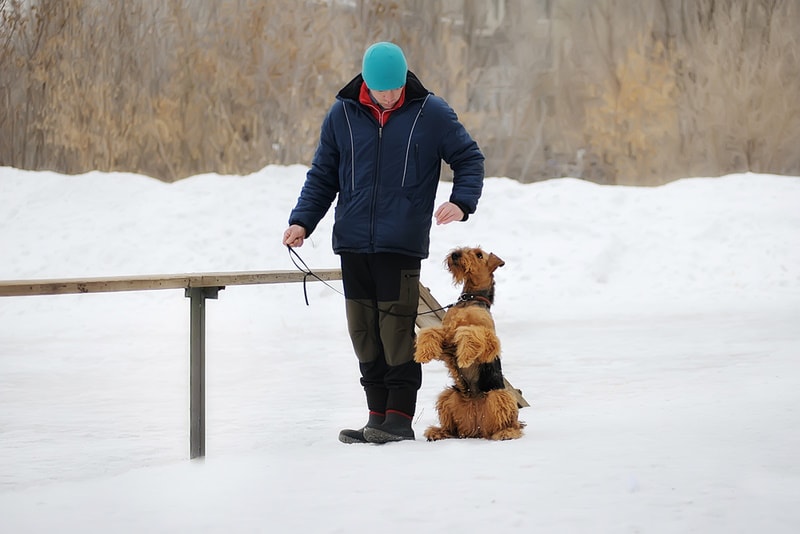My partner and I are parents to two dogs. Our youngest, Charlotte, is a special-needs rescue. The most obvious and challenging of her quirks is her reactivity to other dogs. When we adopted her, we learned she had been found emaciated, living on the streets of a small Southern town in a litter of puppies estimated at just under a year old. She and the puppies went to an overcrowded shelter, where they narrowly avoided being euthanized but were instead transported north.
Other than these heartbreaking snippets, the first year or so of Charlotte’s life remains a mystery, but it doesn’t take a psychic to know that her socialization to other dogs at a critical time was absent and/or negative. In the years since her adoption, she has improved immensely through training, though she remains reactive. Our family lives in New York City in an apartment, so every day involves navigating Charlotte through all the other dogs that also call this city home, approximately 600,000 of them according to a study. Some mornings, it feels like we pass all of them just trying to get the dogs to potty!
The hardest thing about being a parent to a reactive dog actually doesn’t have anything to do with Charlotte. Sure, there are things she can’t enjoy, such as running off-leash in a dog park, going to daycare, or joining us when we get dinner at a crowded outdoor café — none of those are big deals to avoid. The hardest part of having a reactive dog, and bringing her out in the world, is dealing with some of the parents of other dogs. No, really, trust me, SOME OF YOU are the problem, not my dog.
Your clueless attitude about your own dog’s behavior and presence in space is what makes it challenging for my dog to navigate the world in a comfortable way. Just last week, we had a routine vet appointment for vaccines. I was there with both my dogs and watched as other pet parents had their dogs hanging out in literally the only hallway leading to the exam rooms.
It was so frustrating to watch as these dog parents glared at Charlotte when I advocated for her need for space, requesting that they move their dogs out of the hallway so we could pass. Charlotte didn’t react as we navigated a far too tight interaction while getting dirty looks. I really wanted to say something smart to these dog parents, but it wasn’t worth it, their minds were already made up. My dog was clearly a bad dog, even though she hadn’t once barked or lunged.
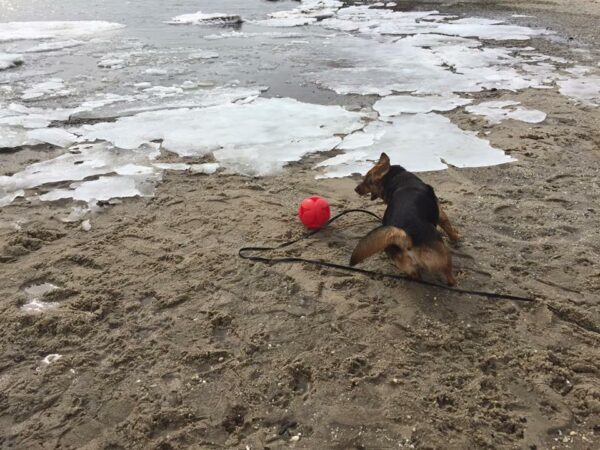
This isn’t just a situation that happens in crowded waiting rooms. Last summer, we took our dogs on vacation to Cape Cod for a week of playing on the beach. We had walked far out at the low tide and were having a great time playing in the tide pools with our dogs. From far down the beach, I saw a large dog racing toward us. At first, I thought the dog was just chasing a ball along the beach, but it quickly became apparent that the dog was actually heading right to us.
I looked around for the dog’s parent. It wasn’t immediately clear who the dog belonged to, but I yelled out “Please call your dog” to a group of people far up the beach, hoping one of them belonged to this dog. A woman turned around.
“She’s friendly!” the woman called back.
“Mine isn’t!” I yelled back, followed quickly by another request that she call her dog.
By now the dog was nearing us, and I was walking Charlotte out to sea (thankfully I was in a swimsuit), into the surf to try to put distance between her and the off-leash dog.
Turning around and seeing this, finally, the woman called her dog, who of course (just like almost most of the dogs people allow off-leash) had no recall.
Finally, after several more times of me yelling for her to come to get her dog (by now Charlotte was literally swimming) as I stood thigh-deep in the ocean, the woman calmly walked over to her dog, who had not responded to any of the dozens of times she had called.
“I don’t know what your problem is; you are more uptight than that dog.” Her words stung. Clearly, to her, the problem was with me and with Charlotte, the leashed dog, who had done nothing wrong other than to be happy to go on a beach walk with her family, a beach that prohibited dogs from being off-leash.
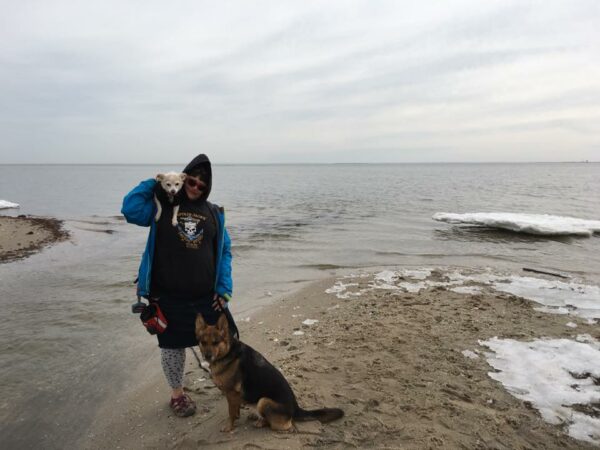
I have a little list of phrases I never want to hear called out when an off-leash dog races toward us, and the top of that list is “He’s friendly!” The way you look at Charlotte in these moments makes me angry, but mostly it makes me sad because she’s under control and isn’t the problem, despite what you think.
I used to say to myself, “I hope your next dog is reactive so you understand.” But I’ve come to realize I wouldn’t wish people like YOU on a special-needs dog because the lack of awareness you show of your dog’s behavior shows me that you would never be able to create a safe and enriching life for a dog who needed you to be vigilant about the world around her.
It’s sad that I have to spend most of my time out in the world with Charlotte managing you and your dog, the “friendly” one, whose leash you aren’t holding.
Read more commentary:
- Let’s Get Behind Programs That Help Low-Income Families Keep Their Pets
- Why I No Longer Shop at My Local Mom-and-Pop Pet Store
- I’m Really Into Dog Clothes — and Here’s Why You Should Be, Too!

